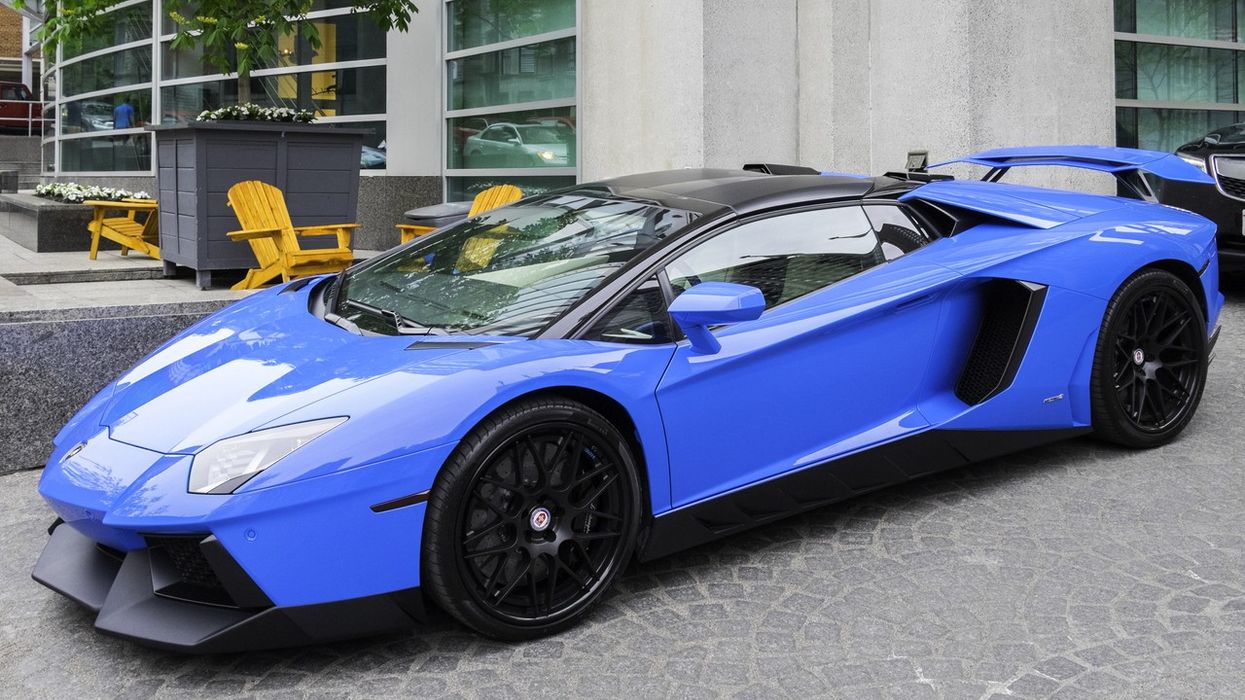Vinesh Kotecha, owner of much-loved 50s American Diner which has now been shut, has been slapped with a fine of £1,000 after he was caught driving a Lamborghini Aventador at 113 miles per hour (mph) while heading to a supercar rally.
Caernarfon Magistrates' Court in Wales heard that Kotecha, who is also a company director at Swadlincote's First Fence, was in one of the 220 supercars that were going to Holyhead for a rally in Ireland. He was stopped by the police.
The 41-year-old Kotecha of High Street, Newhall, told the court that he was under the impression that he was doing "80mph to 85mph". He also argued that getting a chauffeur if he were to be banned from driving would be impractical since he works for long hours, according to North Wales Live.
The magistrates, however, sided with the law-keepers after a trial last week and found Kotecha guilty of violating speed limits, DerbyshireLive reported.
Besides the fine, Kotecha, who has an annual income of £150,000, was also given six penalty points on his license. He already has three which means another three in any offence in future would lead to disqualification. The judges cautioned him saying he needs to be "very careful".
Amy McKechnie, prosecuting barrister, told the magistrates that on September 8 last year, police officer Daniel Owen was stationed at Junction 5 of the A55 at Treban on Anglesey to check the speeds of west-bound vehicles. Around half past noon, Owen checked on his handheld ProLaser speed gun that a dark blue Lamborghini was travelling at 113mph.
In the UK, the supercar retails for between £277,000 and £358,000.
The cop followed the car and stopped it at Junction 4. He told Kotecha that he had been going at a speed of 113mph and sought him to sign a traffic offence report. He also told him that he would be prosecuted.
Kotecha made no remark at this, the court was told, according to the DerbyshireLive report.
In evidence, Owen said police were informed that a convoy of supercars was crossing North Wales and officers were present at various points as a "visual deterrent" to any offending.
He was similarly stationed when he heard and saw four supercars coming along the outside lane.
Kotecha's Lamborghini was the final of the four trailing an older Lamborghini, an Aerial Atom and a McLaren.
When the prosecutor asked Owen what alerted him to the cars at first, he said the noise and added that he himself is a car enthusiast.
"You can hear the noise of a Lamborghini. They are very loud... I enjoy cars myself," he said.
He said he put on his sirens and blue lights and chased although "it was going at quite a speed".
He eventually put the "follow me" sign on and Kotecha's car pulled over. Owen dealt with Kotecha even though there was no evidence on the speed device to prove anyone else had been speeding. The cop then told colleagues in Holyhead about the incident.
"We had a gentle word in the ear of the others in Holyhead to be a little bit more considerate," he told the court.
Under cross examination, barrister Aubrey Sampson told Owen that he had clocked the wrong car and that the vehicle belonging to Kotecha was not speeding.
"I would have to disagree. I am absolutely confident it was that car," Owen said in response.
Kotecha, who is a father of two, told the court he had been with about 220 other supercar drivers while heading to Holyhead for an organised event in Ireland.
They had been driving for two to two-and-a-half hours when they reached Treban.
He told his barrister that he was "a bit shocked" when told about the speed.
"I was a bit shocked. I was surprised to be pulled over at that speed. I could have been doing 80mph to 85mph".
But he was convicted of speeding and admitted driving a vehicle with no front registration plate. He was also fined £300 for that.
According to magistrates chairman Diane Arbabi, evidence produced by the police officer was more "clear, credible and specific" than the defendant's testimony.
Sampson said his client is a company director for a steel fencing manufacturing and distribution firm which employs 115 people and has seven depots from Glasgow to Bristol. Kotecha works for long hours, leaving his home at 4 am and not returning till 11 pm some nights and hence getting a driver if he were banned would be infeasible, the court was told.
It also heard that the defendant drives thousands of miles a year and any driving ban would hurt his business.
Sampson argued the offence had been a "lapse in concentration".
"Despite the high powered car he is not a person that travels at excessive speeds on regular occasions," he said.
Kotecha owns the former American Diner, the restaurant, in John Street, Church Gresley. which closed down in recent months, alongside Umesh Kotecha.
Kotecha must pay £620 costs and a £520 surcharge.




